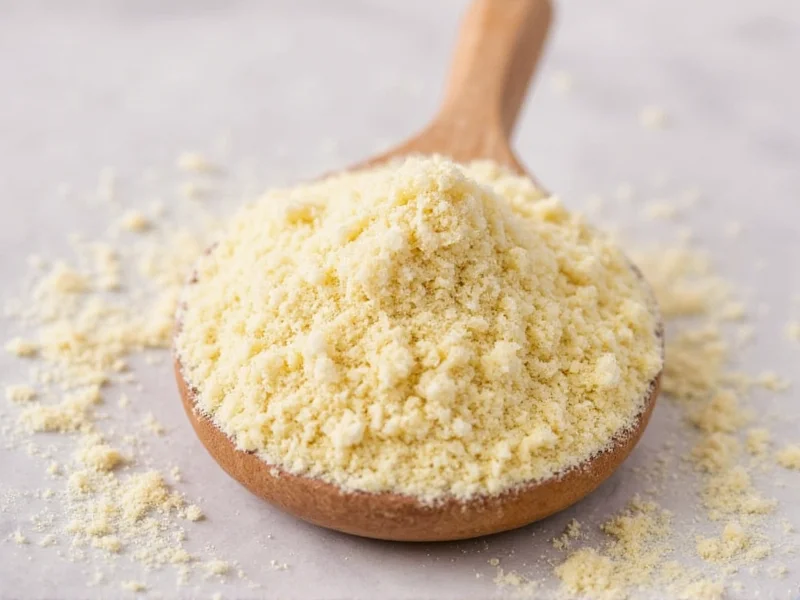Running out of onion powder mid-recipe doesn't have to ruin your cooking. Whether you're adjusting flavors, accommodating dietary restrictions, or simply lacking this pantry staple, understanding proper substitutions ensures your dishes maintain their intended taste profile. This comprehensive guide details effective alternatives with precise conversion ratios and usage tips for every cooking scenario.
Fresh Onion Varieties as Substitutes
Fresh onions provide the most authentic flavor replacement when onion powder isn't available. Yellow onions offer the closest match to the sweet-earthy notes of onion powder, while white onions deliver sharper flavor. Red onions work well in raw applications but may discolor cooked dishes.
When substituting fresh for powdered:
- ¼ cup finely minced fresh onion = 1 teaspoon onion powder
- Reduce liquid content slightly in recipes to account for onion's moisture
- Sauté fresh onions first to mellow raw flavor when replacing in dry rubs
Dried Onion Alternatives
Dried onion products maintain shelf stability while delivering concentrated flavor. These substitutes work particularly well in spice blends, dry rubs, and long-cooking dishes where moisture content matters less.
| Substitute | Conversion Ratio | Best For |
|---|---|---|
| Onion flakes | 1 tablespoon = 1 teaspoon powder | Slow cooker recipes, soups, stews |
| Granulated onion | 1:1 ratio | Dry rubs, marinades, spice blends |
| Caramelized onion powder | 1:1 ratio | Savory dishes needing deeper flavor |
Non-Onion Flavor Enhancers
For those avoiding onions due to allergies, religious restrictions, or dietary preferences like FODMAP-sensitive diets, these alternatives provide similar savory depth without onion content.
Asafoetida (Hing)
This pungent resin delivers intense umami flavor. Use sparingly as it's potent:
- ¼ teaspoon asafoetida powder = 1 teaspoon onion powder
- Always bloom in hot oil first to mellow harsh notes
- Ideal for Indian cuisine and bean dishes
Vegetable Broth Concentrate
Provides savory depth without distinct onion flavor:
- 1 teaspoon concentrated broth base = 1 teaspoon onion powder
- Best in soups, stews, and sauces
- Choose low-sodium versions for better control
Specialty Substitutions for Specific Cuisines
Different culinary traditions offer unique alternatives that maintain authentic flavor profiles when onion powder isn't suitable.
Mediterranean Cooking
For Greek or Italian dishes where onion powder typically appears:
- Fennel seed (crushed): ½ teaspoon = 1 teaspoon onion powder
- Celery seed: ½ teaspoon = 1 teaspoon onion powder
- Leek powder: 1:1 ratio (milder flavor)
Asian Cuisine Alternatives
When preparing stir-fries or Asian-inspired dishes:
- Scallion greens (dried): 1 tablespoon = 1 teaspoon powder
- Shallot powder: 1:1 ratio (sweeter alternative)
- Ginger powder: ½ teaspoon = 1 teaspoon onion powder (adds different dimension)
Practical Conversion Guidelines
Understanding moisture content differences prevents recipe failures when substituting fresh for dried ingredients. This conversion chart helps maintain proper recipe balance when replacing onion powder.
| Substitute Type | Liquid Adjustment | Cooking Time Adjustment |
|---|---|---|
| Fresh onions | Reduce other liquids by 1-2 tbsp per ¼ cup onions | Add 5-7 minutes sauté time before proceeding |
| Dried alternatives | No adjustment needed | Add at same stage as original recipe |
| Broth-based substitutes | Reduce other liquids by 1 tbsp per tsp substitute | Add during liquid incorporation stage |
When Substitutions Won't Work
Certain applications require onion powder's specific properties. In these cases, consider recipe modification rather than direct substitution:
- Dry spice rubs: Onion powder's fine texture helps adhesion. Use granulated onion or increase other dry ingredients by 25%.
- Commercial baking: Onion powder in bread recipes affects both flavor and browning. Substitute with ½ tsp garlic powder + ¼ tsp sugar for similar Maillard reaction.
- Clear broths: Fresh onions cloud broth. Use onion tea (steep 1 tsp onion powder in ¼ cup hot water for 5 minutes, strain) as substitute.
Storage Tips for Homemade Substitutes
Create your own onion powder alternatives for future use:
- Dry minced onions in a 170°F oven for 2-3 hours, then blend to powder
- Store in airtight containers away from light for up to 6 months
- Add 10% rice grains to prevent clumping in humid environments
- Freeze reconstituted onion powder substitutes for longer shelf life
Frequently Asked Questions
Can I use garlic powder instead of onion powder?
Yes, but use half the amount (½ tsp garlic powder = 1 tsp onion powder) as garlic has stronger flavor. This substitution works best in savory dishes like meatloaf or roasted vegetables where complementary flavors are welcome, but avoid in delicate sauces or dishes where onion flavor is central.
What's the best onion powder substitute for keto recipes?
For keto diets, use dehydrated onion flakes (1 tbsp = 1 tsp powder) or asafoetida (a pinch = 1 tsp powder). Both provide onion flavor without significant carbohydrates. Fresh green onions work well too (2 tbsp minced = 1 tsp powder) with minimal carb impact compared to bulb onions.
How do I substitute onion powder in gluten-free baking?
In gluten-free baking, use 1:1 granulated onion or create a paste with 1 tsp onion flakes + ½ tsp water per teaspoon of powder required. The paste prevents separation issues common in gluten-free batters. Avoid fresh onions as their moisture disrupts GF baking chemistry more than in wheat-based recipes.
Can I make my own onion powder substitute?
Absolutely. Dehydrate minced onions at 140°F for 6-8 hours until brittle, then grind to fine powder in a spice grinder. Store in an airtight container with a silica packet. Homemade powder lasts 3-4 months (vs commercial 12-18 months) due to higher moisture content, so check for clumping before use.
What's the best substitute for onion powder in French onion soup?
For authentic French onion soup, use ½ cup finely sliced shallots per teaspoon of onion powder required. Shallots provide similar sweetness with more complex flavor. If avoiding all alliums, combine ¼ cup diced celery with 2 tbsp dry sherry to mimic the savory-sweet profile without onion notes.











 浙公网安备
33010002000092号
浙公网安备
33010002000092号 浙B2-20120091-4
浙B2-20120091-4